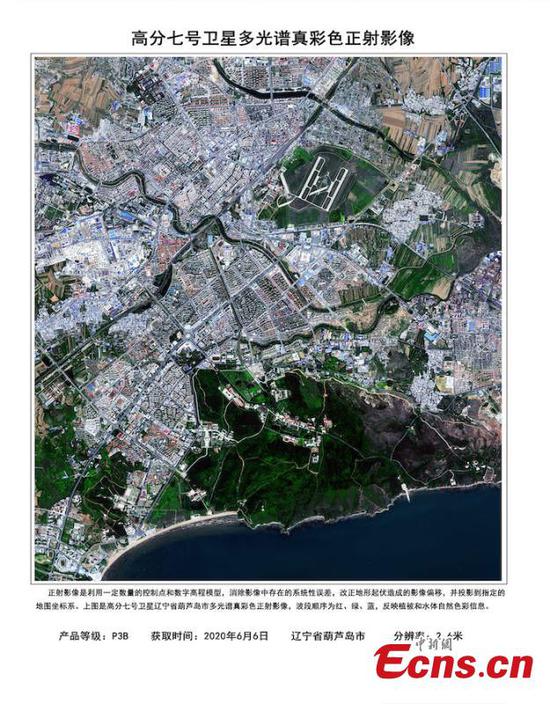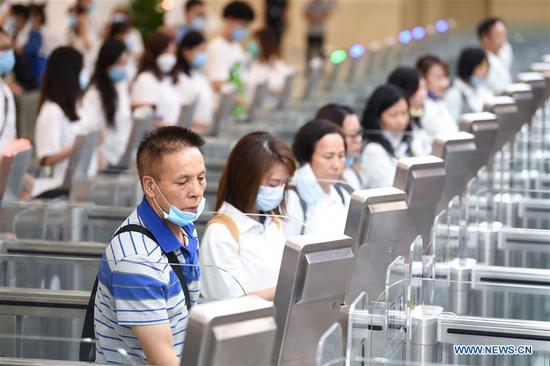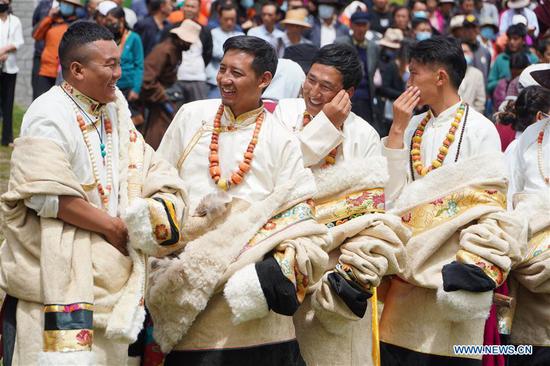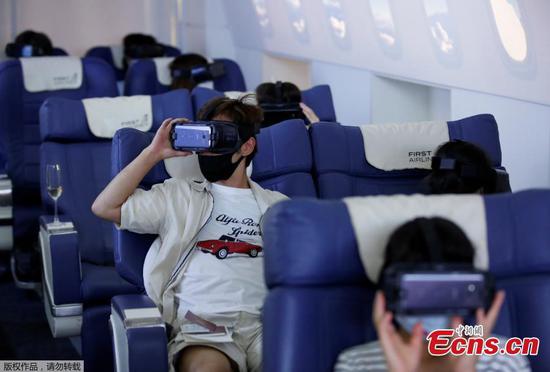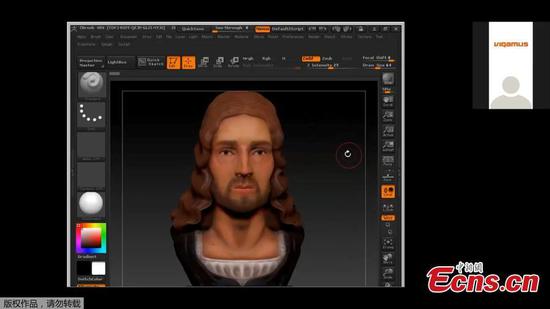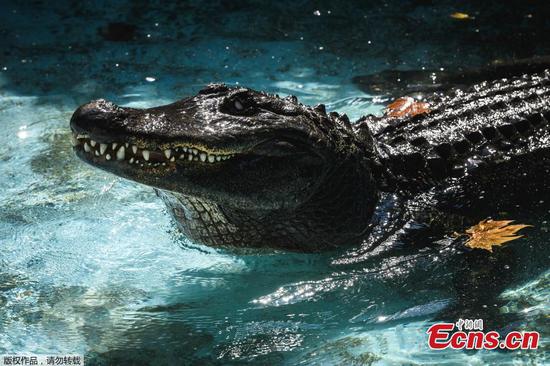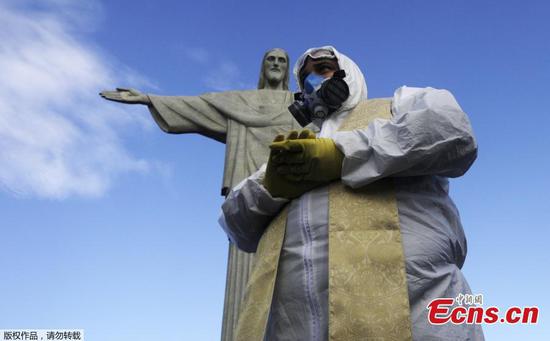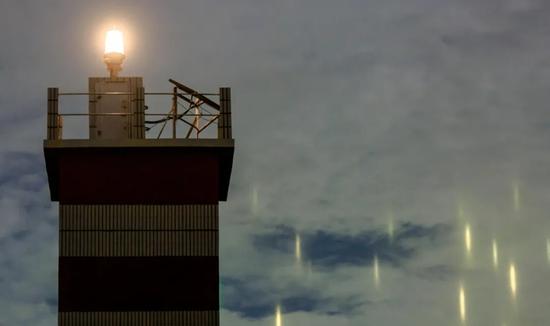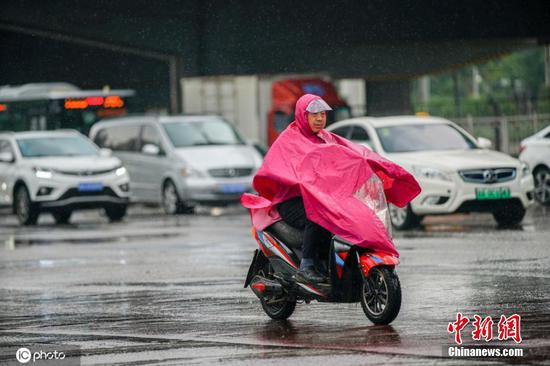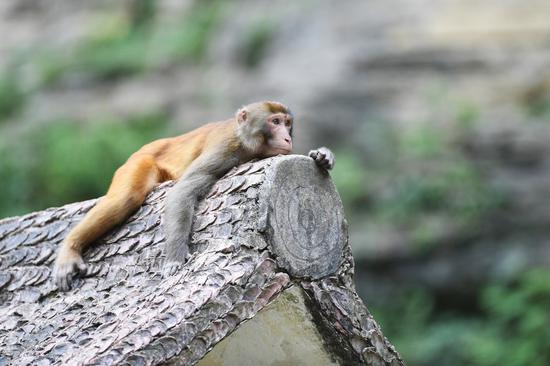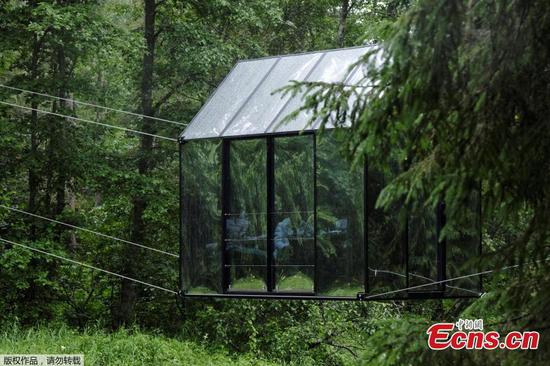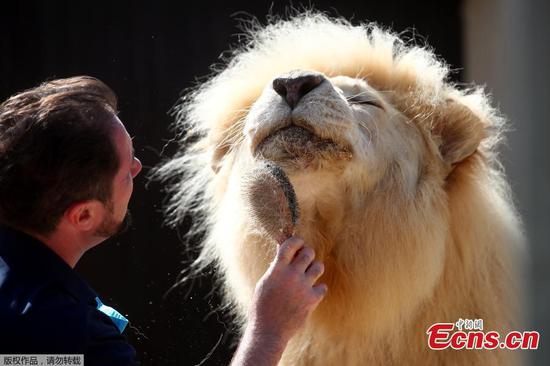
A logo of the video-sharing social networking company TikTok's Los Angeles Office in Culver City, Los Angeles County, the United States on Aug 21, 2020. [Photo/Xinhua]
ByteDance to seek redress over Trump edicts that would kill off its US dealings
ByteDance, owner of the popular video platform TikTok, says it will file a lawsuit against the US government to protect its rights and interests.
"Over the past year we have earnestly sought to communicate with the US government and provided solutions regarding its concerns," the company said in a statement on Sunday. "But the US administration disregarded facts, disobeyed necessary legal procedures and tried to insert itself into negotiations between private businesses.
"To ensure that the rule of law is not discarded, and that our company and users are treated fairly, we announce that we will officially file a lawsuit to safeguard our interests."
TikTok said it started this move, over which there has been speculation for weeks, because it has no other choice.
US authorities have repeatedly accused TikTok of misusing data from US users since last year, but the company maintains that its data in the US is housed in the country.
"Even though we strongly disagree with the administration's concerns, for nearly a year we have sought to engage in good faith to provide a constructive solution," a TikTok spokesman, Josh Gartner, said earlier, arguing that an executive order issued by President Donald Trump deprived it of due process.
"What we encountered instead was a lack of due process as the administration paid no attention to facts and tried to insert itself into negotiations between private businesses."
Trump signed the directive on Aug 6 blocking all transactions with Byte-Dance in an effort to "address the national emergency". However, The New York Times reported the following day that even the Central Intelligence Agency assessed that there is no evidence showing China had intercepted TikTok's data or used the app to intrude into users' mobile phones.
Trump's directive was to take effect within 45 days. On Aug 14 he signed another executive order, this time giving ByteDance 90 days to sell or spin off TikTok in the US.
Besides the company's lawsuit, its US employees plan to take the US government to court over the directive.
Responding to the directive, a Chinese Foreign Ministry spokesman, Zhao Lijian, said that so-called freedom and security are pretexts for "digital gunboat policy" that some US politicians pursue.
Judicial remedies
Qiang Ge, associate professor at the Party School of the Central Committee of Communist Party of China, said seeking judicial remedies to counter actions by the US government, including the president, is common in Washington, and TikTok has finally adopted this approach.
"This is the right path. The mastery of local laws, regulations and subtle gameplays in overseas markets is essential to being a qualified international business."
There were also cultural differences at play, Qiang said.
"In a series of spats including the TikTok case, China has often taken the initiative to make concessions and believed in drawing on the goodwill of negotiation. But the Trump administration would tend to interpret such moves as being far from China's bottom line, which would push it to take even tougher measures."
Some users of WeChat in the US are also seeking legal redress over Trump's directive, which they say would in effect bar access to the popular Chinese messaging app in the country.
In a suit filed in San Francisco on Friday the nonprofit US WeChat Users Alliance and several others said they rely on the app for work, worship and staying in touch with relatives in China. The plaintiffs said they are not affiliated with WeChat or its parent company, Tencent Holdings.
They have asked a federal court judge to stop Trump's directive from being enforced, saying it would violate the freedom of speech, free exercise of religion and other constitutional rights of WeChat's users in the US.












